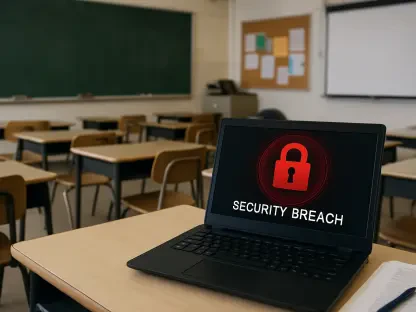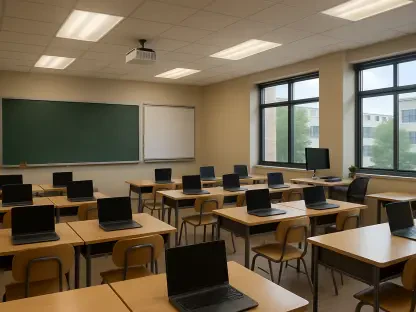In a state known for its harsh winters and wide-open prairies, discussions in the North Dakota legislature have turned to the important topic of feeding children. House Bill 1475, which has garnered bipartisan support, proposes state funding to ensure that all K-12 students, including those in private schools, have access to school meals. Advocates for the bill argue that ensuring every child is well-fed aligns with the state’s values and long-term goals. Meanwhile, opponents express concern over the financial implications for taxpayers.
The Case for State-Funded School Meals
Support from Diverse Stakeholders
Patrick Hart, who testified in favor of House Bill 1475, highlighted various existing state expenditures to argue that funding school meals would be a worthwhile investment. By pointing out that North Dakota already allocates significant resources to other areas, Hart urged legislators to consider the legacy of feeding children as equally significant. This bill proposes to cover the costs of K-12 school meals through the state’s general fund, with an estimated $140 million required over two years. This projection comes from Lynelle Johnson, the director of child nutrition and food distribution programs within the North Dakota Department of Public Instruction.
Advocates argue that state-funded school meals would maximize federal reimbursements and provide support to local agriculture by sourcing locally grown food. Moreover, proponents believe that offering free school meals would attract young families to North Dakota, contributing to a more vibrant and growing community. Ensuring that students have access to nutritious meals is also tied to improved academic outcomes, a point emphasized by Aimee Copas, the executive director of the North Dakota Council of Educational Leaders. These supporters contend that hungry children struggle to focus and engage in learning, making this program pivotal for their educational success.
Legislative Perspectives and Broader Impact
The widespread support for House Bill 1475 across party lines speaks volumes about the perceived importance of child nutrition in broader social discussions. Legislators in favor of the bill argue that feeding children is a fundamental responsibility of the state, likening it to other public services such as education and healthcare. By investing in children’s health and well-being, North Dakota could potentially set a precedent for other states to follow. However, the bill is not without its detractors. Connie Samuelson from Minot voiced concerns over the increased tax burden on residents, labeling the proposal a “slippery slope” that could lead to escalating taxpayer-funded expectations.
Another legislative option on the table is House Bill 1553, which suggests using the state’s Legacy Fund to cover school meal costs. This fund, fueled by oil and gas tax revenue, could offer a financial alternative without directly impacting taxpayers. Nevertheless, the bill has not yet been scheduled for a hearing. Both pieces of legislation share the goal of combating child hunger but differ in their approach to funding, reflecting the ongoing debate about fiscal responsibility and the role of state funds in social programs.
Examining the Opposition
Concerns Over Financial Implications
Opponents of House Bill 1475, like Connie Samuelson, argue that the financial burden on taxpayers could set a dangerous precedent. They worry about the potential for escalating expectations for taxpayer-funded programs, fearing that once one service is provided for free, additional demands will follow. This viewpoint suggests that the bill might open the door to future obligations that could strain state finances. For these opponents, maintaining fiscal discipline is crucial, and they urge caution before committing to such a substantial investment.
Additionally, the projected $140 million required over two years is seen by critics as a significant expenditure that needs thorough vetting. They call for a detailed analysis of budget allocations and potential future costs, warning against hastily committing funds without a comprehensive understanding of long-term financial implications. These concerns underscore a broader debate about the balance between addressing immediate social needs and ensuring sustainable fiscal policies for future generations.
Weighing the Educational Benefits
Despite the financial concerns, proponents emphasize the clear educational benefits of ensuring that all students have access to nutritious meals. Research consistently shows that well-nourished children perform better academically, and champions of the bill argue that investing in school meals is an investment in the state’s future. They cite studies that link access to healthy food with improved concentration, better behavior, and higher overall academic achievement. Supporters also argue that state-funded school meals can help level the playing field, providing equal opportunities for students from all socioeconomic backgrounds to succeed.
Furthermore, advocates of the bill highlight a moral imperative to address child hunger. They argue that in a state with substantial economic resources, no child should go hungry. By prioritizing children’s nutritional needs, the state can make a powerful statement about its values and commitments to its youngest residents. The call to ensure that every child is well-fed is framed not only as an educational strategy but also as a societal obligation to promote health and equity.
Future Steps and Potential Outcomes
Moving Forward with Legislation
Although no decision was reached in the committee meeting, the discussion on House Bill 1475 has brought significant attention to the issue of child nutrition in North Dakota. The bill has sparked a meaningful debate about the role of state funding in supporting students’ well-being and the extent to which fiscal responsibility should guide legislative decisions. As policymakers continue to weigh the benefits and drawbacks, the conversation underscores the complexity of addressing social issues within the framework of available resources and taxpayer responsibilities.
Looking ahead, the outcome of House Bill 1475 will likely depend on continued advocacy and negotiations. Supporters will need to address the financial concerns raised by opponents and present a compelling case for the long-term benefits of the program. This might include additional research on funding mechanisms and more detailed projections of the bill’s fiscal impact. Meanwhile, the potential for using the state’s Legacy Fund as proposed by House Bill 1553 remains an alternative avenue that lawmakers could explore.
Broader Implications for Educational Policy
In a state marked by its harsh winters and expansive prairies, discussions in the North Dakota legislature have brought the topic of feeding children to the forefront. House Bill 1475, which has gained bipartisan backing, proposes state funding to provide school meals to all K-12 students, including those attending private schools. Proponents of the bill argue that ensuring every child has access to nutritious meals is consistent with the state’s values and its long-term aspirations. They emphasize that well-nourished children are more likely to succeed academically and grow into healthy adults. Conversely, opponents are raising concerns about the financial burden this bill might place on taxpayers. They worry about the long-term economic impact and question whether the state’s budget can sustainably support such an initiative. The debate reflects a broader conversation about the role of government in addressing child hunger and the responsibility of taxpayers in funding such programs, highlighting the complexities involved in balancing public health and fiscal responsibility.









